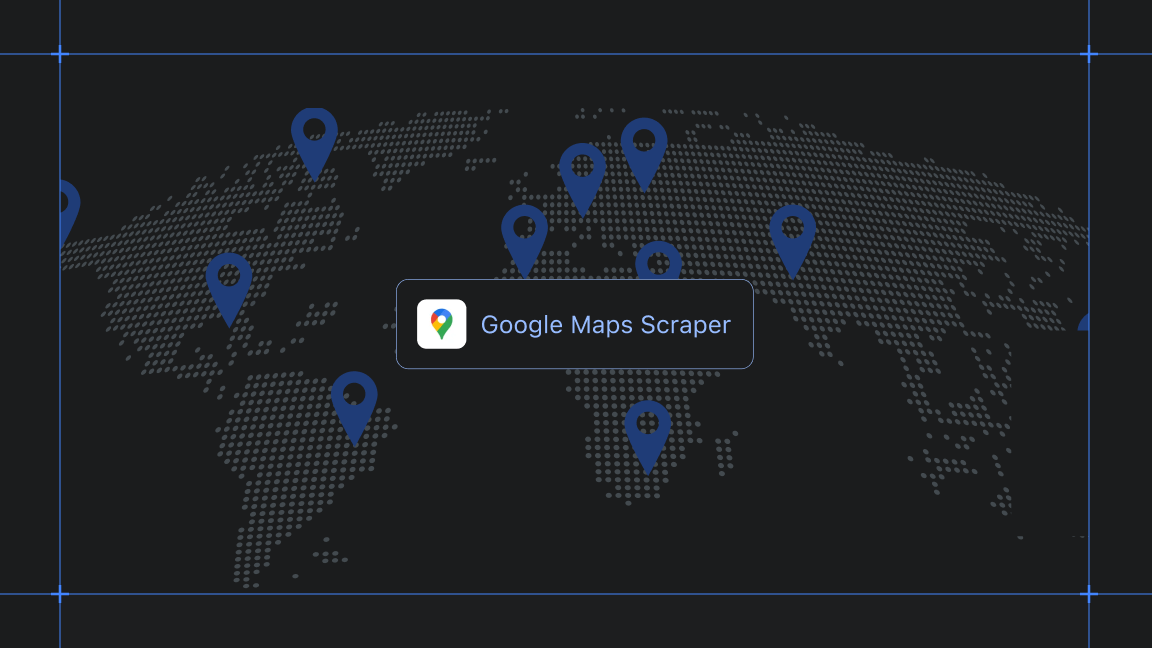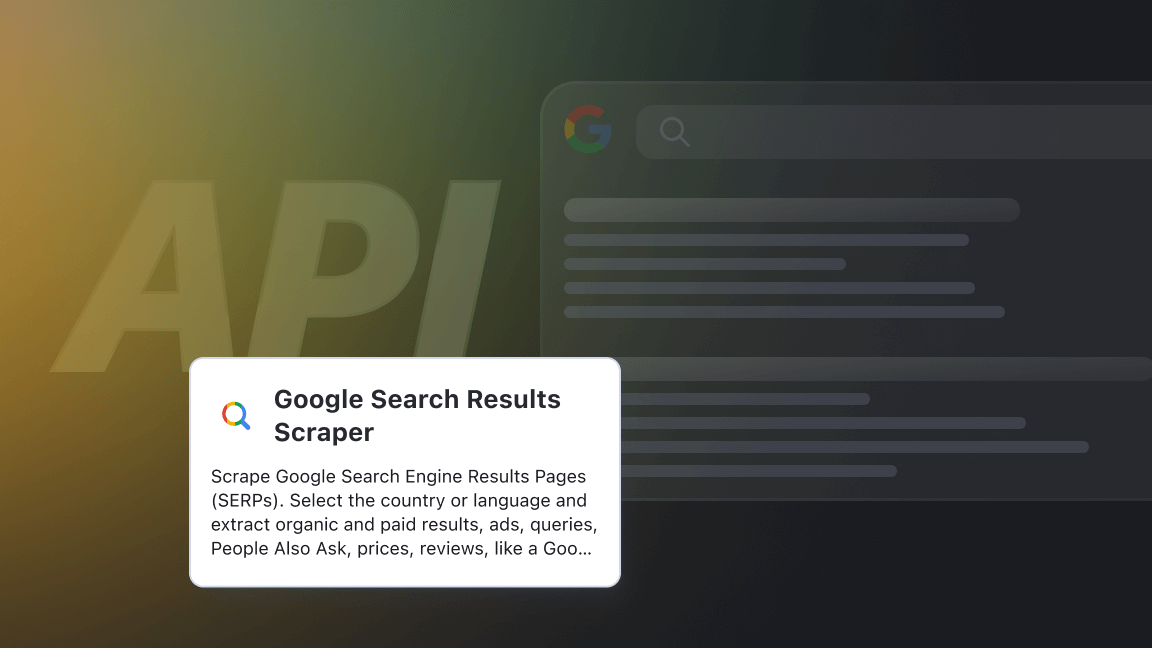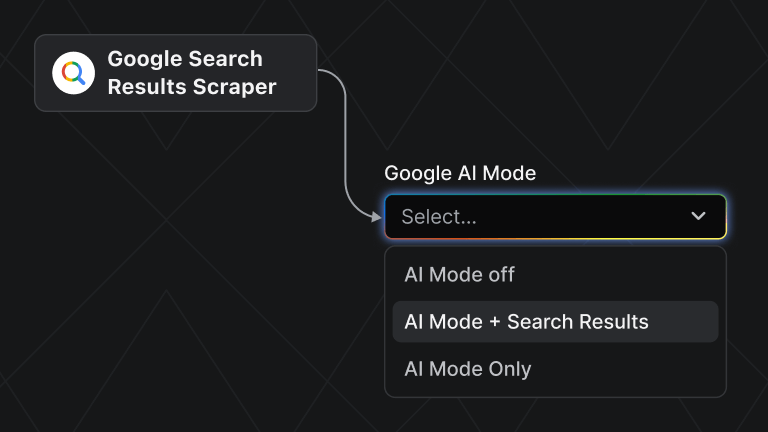Scraping Google Images is notoriously difficult. Google discontinued its official Image Search API back in 2011, leaving developers without a straightforward way to access image data at scale. Manual extraction is tedious and time-consuming, while building a custom scraper requires dealing with complex JavaScript rendering, handling rate limits, and maintaining code as Google frequently updates its page structure.
The good news? Google Images Scraper solves these problems with a ready-made solution that handles all the technical complexity for you. No coding required, no infrastructure to maintain, and no worries about breaking changes. You get reliable access to image URLs, dimensions, thumbnails, source pages, and more - all in a few clicks.
How to scrape Google Images
Scraping Google Images is easier than you think. All you need to do is to follow this 4-step guide.
Step 1: Find Google Images Scraper on Apify Store
Go to Google Images Scraper on Apify Store.

Once you're on the right page, choose the Try for free button, and you're ready to start scraping Google Images.

If it‘s your first time on Apify, you‘ll need to sign up with your email, Google, or GitHub account.

You don't have to enter your credit card details, and the Free plan gives you $5 free platform usage. With that, you can scrape over 1,600 Google Images monthly.
You'll then be taken to Apify Console where you can configure the scraper.

Step 2: Enter your search query
Now comes the question. How to make the tool scrape what you want? Just enter the keyword you want to search for in the Searches to go through line. Click on the blue + Add button if you want to scrape more search terms. Once you run the scraper, it will crawl the web and find data for every image associated with these terms.
To clarify even more, take a look at the example below. In this case, we want to scrape Google Images that depict forests.
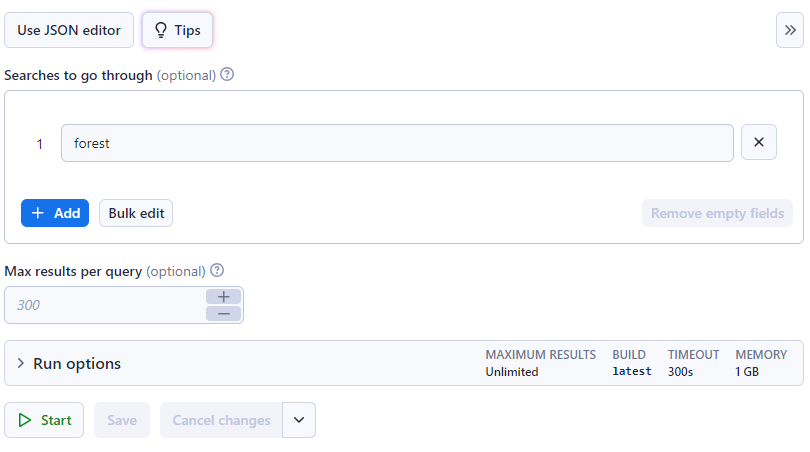
Step 3: Click Start ▶ to scrape info from Google Images
The rest of the work is up to the scraper. Just hit the green Start button and let the magic happen.
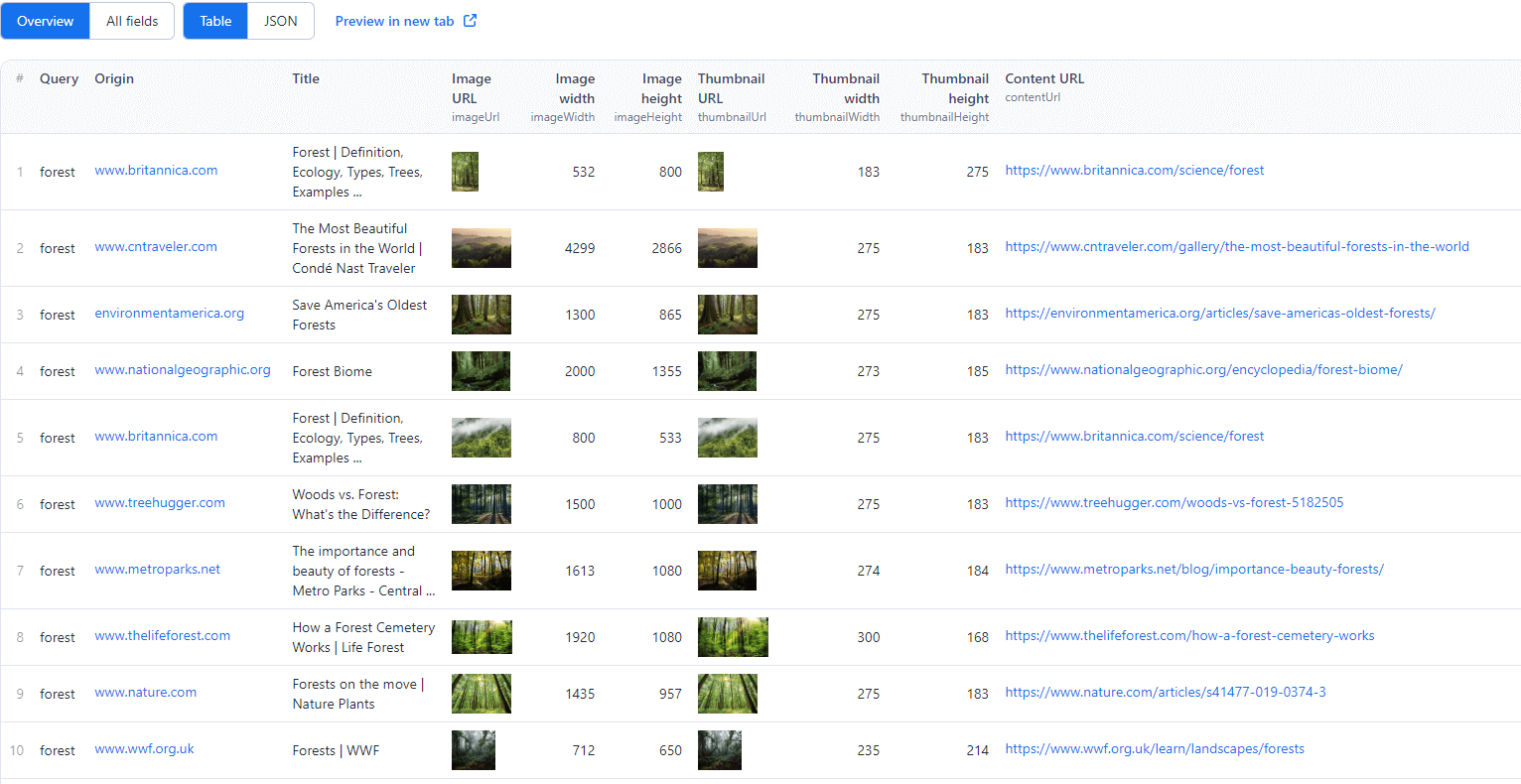
You‘ll see the status changes to Running and eventually to Succeeded. That means you have your data prepared. The images, their width, height, thumbnail URL, thumbnail width, height, content URL, and much more are ready for you in a huge table. You can also display it in JSON.
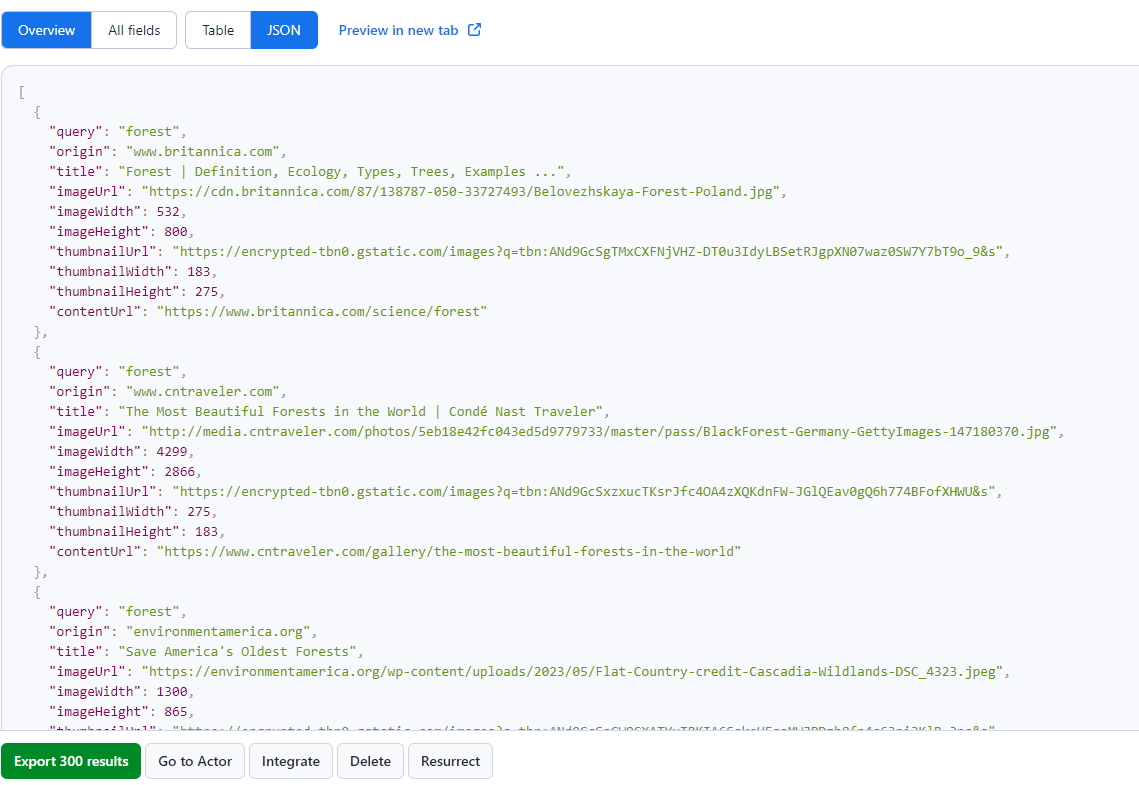
Step 4: Choose your preferred format and download Google Image data
Of course, you‘ll not be stuck with a vast amount of data in Apify Console. You can download it in a variety of formats, including HTML table, RSS, CSV, XML, and, of course, Excel.
Before hitting the Download button, you can also choose if you want to omit some fields. That‘s great in case you need, let‘s say, only the titles of the images, and you don‘t really care about their heights.
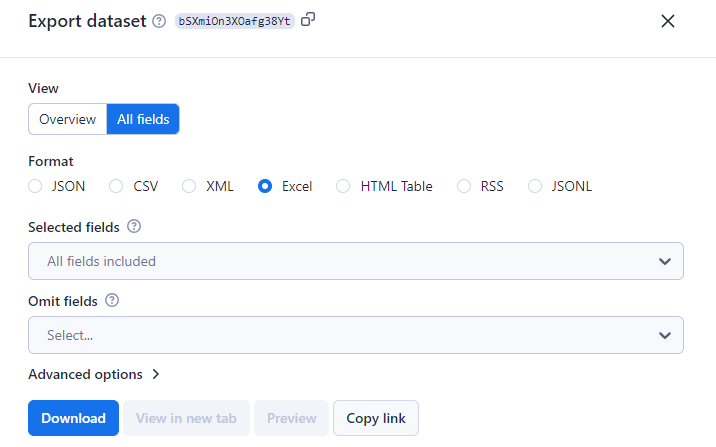
Need to scrape Google search results too?
If you're looking for text-based search data alongside images, check out Google Search Results Scraper. It extracts organic results, paid ads, product listings, prices, ratings, review counts, and more.
FAQs
How to do image scraping?
There are multiple ways to scrape images. You can build a custom scraper using Python libraries like Beautiful Soup, Scrapy, or Selenium, but this requires significant programming knowledge and ongoing maintenance. The easier approach is using a pre-built tool like Google Images Scraper on Apify Store.
If you prefer coding your own solution, follow these steps:
- Choose your Python libraries (Beautiful Soup, Scrapy, or Selenium)
- Inspect the target page to identify image tags (usually
<img>) - Write and execute your scraping code using Python web scraping templates
How to scrape Google Images?
The easiest method is using Google Images Scraper on Apify Store. Simply enter your search queries, specify how many results you want, and click Start. The scraper handles all the technical complexity automatically.
Does Google allow image scraping?
Google allows web scraping to the extent permitted by its Terms of Service. You must ensure your scraping activities don't violate these terms. Additionally, practice ethical web scraping by respecting rate limits, robots.txt files, and website resources.
Is scraping Google Images legal?
Yes, web scraping is generally legal when done properly. For a comprehensive understanding of the legal landscape, read our guide to web scraping legality or watch this video interview on web scraping law. The key is to scrape responsibly and in compliance with applicable terms of service.
Can I download images from Google with Google Images Scraper?
Google Images Scraper extracts image URLs, not the actual image files. To download the images themselves, you'll need to use Image Downloader as a second step. It takes the URLs from your scrape and downloads the images into a ZIP folder.
Can I use Google Images Scraper for reverse image search?
No, Google Images Scraper doesn't support reverse image search (searching with an image instead of keywords). For that functionality, use Google Lens Actor, which can perform reverse image searches and extract text from images.
How to scrape Google Images using Python?
You can access Google Images Scraper through the Apify API using the apify-client PyPI package. This lets you integrate the scraper into your Python workflows programmatically. Learn more in the Apify Python client documentation.
Is it possible to scrape Google Search?
Absolutely. Use Google Search Results Scraper to extract organic results, paid advertisements, product listings, prices, ratings, review counts, and more. It's ideal for SEO analysis, competitive research, and market intelligence.
How can I integrate scraping Google Images into my workflow?
Apify offers integrations with popular services including Zapier, Make, Google Sheets, Slack, and GitHub. You can automatically trigger scraping runs, receive notifications, and push data to your preferred tools. Learn how to set up integrations in the documentation.
How can I build my own Google Images scraper?
If you want to create a custom scraper, you'll need basic programming knowledge, an Apify Creator plan, and access to web scraping templates for Python or JavaScript. Apify's platform handles hosting, scheduling, and scaling, so you can focus on the scraping logic.



